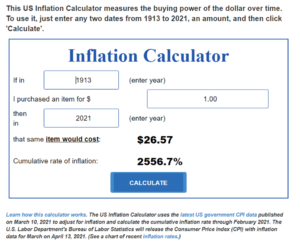
The following article may be controversial to some, but, as inflation grows, home affordability will decrease.
I used to really enjoy going to the grocery store. I would relentlessly hunt for deals, and I would show off what I was able to find when I got home. But now all of the bargains are gone. Instead, there are ridiculous prices and there are even more ridiculous prices. The prices for some of the things that I normally buy have doubled. In other cases, the prices have almost doubled. Of course the soaring cost of living is the direct result of decisions that our leaders have made. They just kept borrowing, spending and flooding the system with money, and now the cost of living is wildly out of control.
Continue reading……..
 It is the authors opinion, the topics discussed below will have a major impact on both note and real estate investments.
It is the authors opinion, the topics discussed below will have a major impact on both note and real estate investments.







 on the monthly payments and a depreciated equity position. If you plan on holding it forever, you are setting yourself up for a loss. Things change. There are Black Swan Events.
on the monthly payments and a depreciated equity position. If you plan on holding it forever, you are setting yourself up for a loss. Things change. There are Black Swan Events.